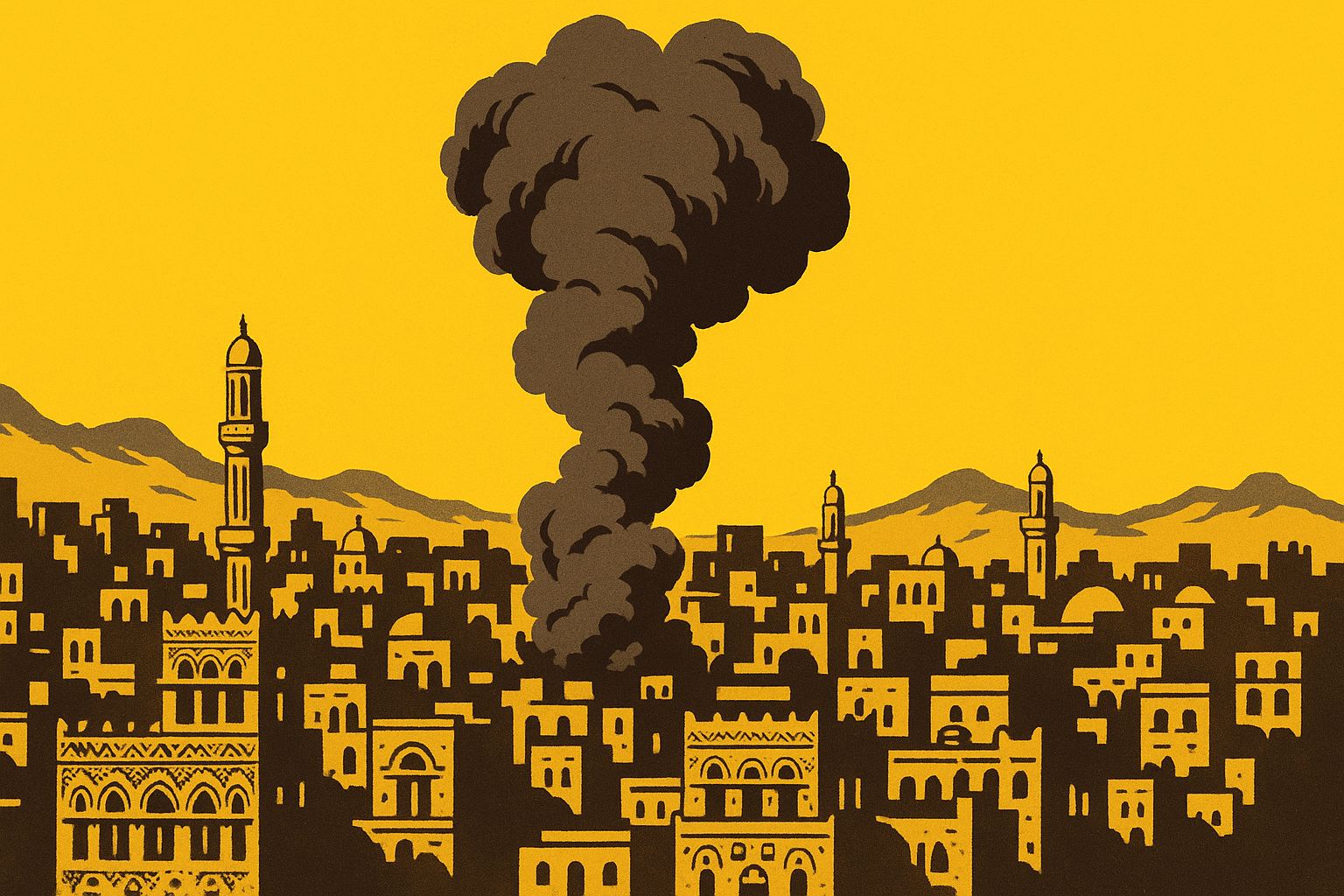1.Introduction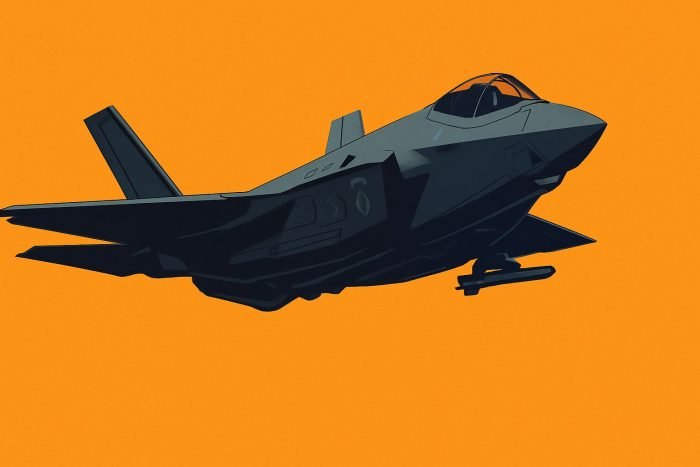
Between 2021 and 2024, the United Kingdom exported arms to 84 countries under a licensing regime meant to safeguard against misuse.
But Action on Armed Violence’s analysis of such exports over five years has revealed that the militaries of at least 23 of those recipient states went on to use explosive weapons in populated areas during that same period, often with devastating consequences for civilians.
Across the 23 countries identified, there were 6,338 incidents carried out by the states’ militaries and involving explosive weapons in populated areas, as reported in English language media over the five years examined, resulting in 59,690 civilian casualties — including 30,528 killed and 29,162 injured.
While this does not prove that British-made weapons were used in all or any of those attacks – the exports included in some cases bombs, missiles, rockets, and other explosive munitions — the pattern of UK arms deals with governments engaged in urban bombardment raises serious questions about Britain’s compliance with international law and is the main focus of this report.
Under the Arms Trade Treaty and UK regulations, export licences should be denied where there is a clear risk that the arms might be used to commit serious violations of humanitarian or human rights law. This report examines that risk — and the broader ethical implications of Britain’s role in enabling armed violence abroad. To address these risks and restore credibility to its arms control regime, the UK must do more than acknowledge the dangers of exporting explosive weapons to volatile regions. It must act decisively.
This report starts with concern – 23 countries armed by the UK that later used explosive weapons in populated areas – and ends with hope – a set of concrete, evidence-based recommendations for reform. These include enhancing transparency and parliamentary oversight, instituting a presumption of denial for high-risk destinations, mandating independent risk assessments, and enforcing robust post-export monitoring.
Only by aligning its export practices with the spirit and letter of international humanitarian law can Britain ensure its weapons do not contribute to civilian harm abroad, and begin to close the expanding gap between its stated values and its export realities.
2.Sending weapons to war zones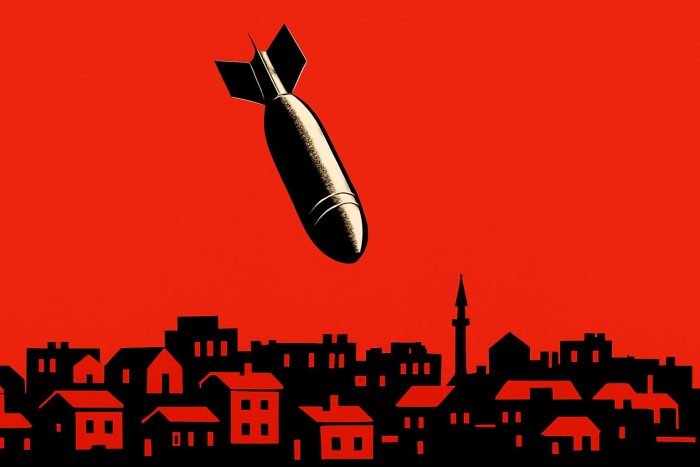
Between 2021 and 2024, the United Kingdom exported arms and licences valued at between £1 million and £4.5 billion to 84 countries around the world. These included bombs, missiles, rockets, grenades, and other explosive munitions — categories that are often used in airstrikes, artillery barrages, and attacks on towns and cities (Action on Armed Violence [AOAV], 2024).
Among the biggest buyers were Saudi Arabia (£4.5bn), Qatar (£3.9bn), the United States (£2.2bn), Turkey (£832m), the UAE (£284m), France (£840m), Italy (£586m), Germany (£290m), Brazil (£239m), Canada (£641m), Taiwan (£362m), Egypt (£172m), Bahrain (£118m), Spain (£200m), South Korea (£301m), Poland (£265m), Indonesia (£252m), Australia (£138m), Romania (£152m), Norway (£135m), Portugal (£132m), and Bangladesh (£123m) (CAAT, 2024).
AOAV’s analysis — drawing on our Explosive Violence Monitor and open-source data — shows that at least 23 of these countries have been involved in the use of explosive weapons in populated areas during the same period.
These are: Saudi Arabia, United States, Turkey, Israel, Syria, Sudan, Armenia, the Philippines, Pakistan, Kenya, Ethiopia, Uganda, Afghanistan, Somalia, Nigeria, Iraq, Ukraine, India, Egypt, Bahrain, Bangladesh, Indonesia, and Yemen.
To be clear: the presence of UK arms exports to these countries does not mean that British-made weapons were definitively used in the civilian harm recorded. In many cases, these states also procure arms from other major exporters such as the US, Russia, France, China, and Germany. But the overlap between UK export data and incidents of explosive violence is striking — and worth noting (AOAV, 2024).
The risk, in legal terms, is significant. Under the Arms Trade Treaty and the UK’s own export control laws, the government must refuse licences if there is a “clear risk” that the weapons might be used in serious violations of international humanitarian or human rights law. Continued exports to countries involved in bombing towns, displacing civilians, or destroying infrastructure may well cross that line (United Nations, 2013).
2.1. Saudi Arabia, Israel, Turkey, and the United States: the most concerning cases
2.1.1.Saudi Arabia
Saudi Arabia remains the UK’s largest arms customer by far. With £4.5 billion in purchases from 2021 to 2024, Riyadh’s arsenal includes aircraft, missiles, and munitions — many supplied by the UK. In that same period, AOAV documented over 300 incidents of explosive violence linked to Saudi-led operations in Yemen, often involving civilian casualties (717 people killed and 1.134 injured specifically, as per our Explosive Violence Monitor). While it is not possible to prove conclusively that British weapons were used in each case, the Saudi air force has historically relied on UK-made Typhoon and Tornado jets, supported with British training and spare parts (AOAV, 2024).
Investigations by the UN Group of Eminent Experts on Yemen have repeatedly accused the Saudi-led coalition of conducting indiscriminate airstrikes, violating the principles of distinction and proportionality under international humanitarian law. Targeting civilian infrastructure such as schools and hospitals, these actions have contributed to a severe humanitarian crisis in the region (OHCHR, 2021).
Despite these findings, UK arms exports have continued, raising serious concerns about violations of the Arms Trade Treaty (Article 6 and 7) obligations and potential complicity in breaches of the Fourth Geneva Convention. Notably, British-made Typhoon and Tornado jets — supplied, maintained, and partly operated with UK support — have been used extensively by Saudi forces (United Nations, 2013).
2.1.2. Israel
Israel also receives British arms, although on a smaller scale (£85m in the same four-year period). However, Israeli military operations in Gaza in 2021, 2022, and 2023 saw extensive use of air-dropped munitions in residential areas, compared to previous years, with hundreds of civilians killed. Our Explosive Violence Monitor registered 24,124 civilians killed and 14,795 injured by state violence, since 2020 (AOAV, 2024). This is likely an underestimate, as we only capture English language media reports of specific incidents.
Reports by the UN Human Rights Council and human rights organisations such as Amnesty International and Human Rights Watch have documented patterns of indiscriminate and disproportionate attacks potentially constituting war crimes. British export licences to Israel have included components for targeting systems, drones, and aircraft (Human Rights Watch, 2023; Amnesty International, 2023; OHCHR, 2024).
Israel’s primary military supplier remains the United States, but the UK’s role as a secondary supplier obliges it to rigorously assess the risk that exported equipment could contribute to violations. Export licences to Israel may breach the UK’s obligations under the ATT and risk indirect complicity in serious violations of international law (United Nations, 2013). In particular, following the 2021 escalation, the UN High Commissioner for Human Rights called for an end to arms transfers that could be used in the commission of human rights violations. Yet UK exports have continued largely unabated.
In November 2024, the International Criminal Court (ICC) issued arrest warrants for Israeli Prime Minister Benjamin Netanyahu and former Defence Minister Yoav Gallant. They are accused of war crimes and crimes against humanity during military operations in Gaza, including the use of starvation as a method of warfare and targeting civilians (International Criminal Court [ICC], 2024).
The International Court of Justice (ICJ) ruled in July 2024 that Israel’s settlement activities in the West Bank and East Jerusalem violate international law, specifically the Fourth Geneva Convention, and called for the evacuation of settlers from these territories.
2.1.3. Turkey
Turkey purchased £832 million worth of UK arms and military equipment, and has been involved in cross-border bombardments in Syria and northern Iraq, where civilian populations remain at risk. Turkey has also conducted drone strikes in disputed regions and against Kurdish targets in urban areas. UK arms exports have included drone technology, components, and surveillance equipment (AOAV, 2024).
Over the last four years, Turkey has conducted multiple cross-border operations in Syria and northern Iraq, targeting Kurdish groups but also affecting civilian populations. Our Explosive Violence Monitor has recorded 462 deaths and 908 civilians injured by state violence (OHCHR, 2024a).
The UN Office of the High Commissioner for Human Rights (OHCHR) has criticised Turkey’s operations for indiscriminate bombardments and the displacement of civilians, particularly in northeastern Syria. In its military campaigns — notably Operation Peace Spring — Turkey has been accused of violating international humanitarian law by failing to distinguish between combatants and civilians, actions that have led to potential breaches of the Fourth Geneva Convention and the Charter of the United Nations. British-supplied drone technology and aircraft components may have contributed to these operations, again raising legal and ethical questions about UK arms licensing practices.
A 2024 UN report highlighted Turkey’s erosion of judicial independence, suppression of civil liberties, and the use of anti-terrorism laws to detain lawyers, journalists, and opposition figures. The report also noted instances of torture in custody and transnational repression, including forced returns of dissidents (OHCHR, 2024b). In March 2024, a Turkish drone strike in Somalia’s Lower Shabelle region killed 23 civilians, including 14 children. Amnesty International is investigating the incident as a potential war crime, raising concerns about Turkey’s military operations abroad (Amnesty International, 2024).
2.1.4. The United States of America
The United States, a long-standing ally and arms buyer, purchased £2.2 billion in UK arms during the 2021–2024 period, including components for fighter jets, sensors, and missile systems. Our Explosive Violence Monitor registered 92 civilians killed and 35 injured by US military operations. While US military systems are largely domestically produced, British components are embedded in many platforms used in operations across Iraq, Syria, Somalia, and Afghanistan (AOAV, 2024).
US drone strikes and air raids — particularly in Somalia and Syria — have repeatedly resulted in civilian casualties (UNSOM, 2022; AOAV, 2024). Reports from the UN Assistance Mission in Somalia (UNSOM) and other monitors have criticised the United States for inadequate civilian harm mitigation, sometimes contravening the principles of distinction and proportionality under IHL (OHCHR, 2023). In response to the ICC’s investigation into alleged Israeli war crimes, the U.S. imposed sanctions on ICC officials, including Prosecutor Karim Khan. This move was criticised as an attempt to undermine international justice mechanisms in order to avoid potential responsibilities (ICC, 2024).
Thus, the possibility that UK-made components were part of systems implicated in civilian harm cannot be dismissed and must be considered in any serious risk assessment under the ATT. Moreover, recent investigations have suggested that some US strikes may not meet the standards required under international humanitarian law, further compounding the UK’s legal exposure when providing military materials used in such operations. The presence of UK-exported equipment in a military’s arsenal creates a risk of complicity. And even if a specific weapon cannot be traced back to the UK, the legal framework underpinning arms control obliges exporters to account for how their goods might be used — not just how they are sold (United Nations, 2013).
3. The legal and ethical framework: responsibility beyond the borders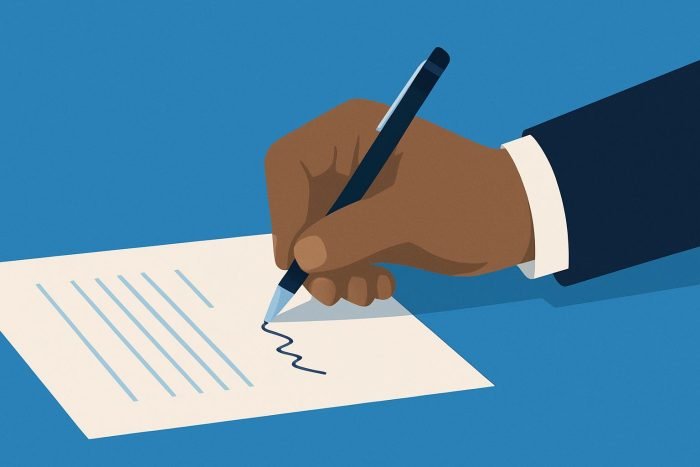
The United Kingdom is a signatory to a suite of international treaties governing the arms trade and the protection of civilians in conflict. Chief among them is the 2013 Arms Trade Treaty (ATT), which prohibits arms transfers where there is a clear risk that the weapons would be used to commit serious breaches of international humanitarian law or human rights law (United Nations, 2013).
The ATT obliges states not only to assess the risk of misuse, but to actively deny licences if the potential for civilian harm outweighs other considerations (United Nations, 2013). Other key agreements include:
- The Fourth Geneva Convention (1949), which mandates the protection of civilian persons in times of war (ICRC, 1949).
- The Hague Conventions (1899 and 1907), which prohibit indiscriminate attacks and demand protection of non-combatants (ICRC, 2005).
- The Convention on Certain Conventional Weapons (1980), which restricts or bans the use of specific weapon types (UNODA, 1980).
- The Convention on Cluster Munitions (2008) and the Anti-Personnel Mine Ban Treaty (1997), both of which the UK has ratified (Cluster Munition Coalition, 2022; Landmine Monitor, 2021).
Under these legal instruments, the UK government bears responsibility not only for what it exports, but for ensuring those exports are not likely to cause civilian harm (UN Human Rights Council, 2022). Failure to conduct adequate risk assessments, or to halt arms sales when violations occur, could amount to a breach of international law (Amnesty International, 2023).
The UK’s domestic export control regime includes similar language. Licences should be denied when there is a “clear risk” of use in internal repression or serious IHL breaches (UK Government, 2023).
However, licensing transparency has declined in recent years, and decisions are often made behind closed doors. As AOAV has reported, efforts to suspend arms sales to Saudi Arabia in 2019 were reversed the following year, despite ongoing airstrikes in Yemen (AOAV, 2024). Notably, after the Court of Appeal ruled in 2019 that UK arms sales to Saudi Arabia were unlawful because of their use in Yemen, the government resumed exports after conducting opaque internal reviews — despite mounting evidence of ongoing violations (BBC, 2019).
What this reveals is not just a failure of legal oversight, but a deeper ethical rot. Britain cannot claim to support a rules-based international order while supplying weapons to states that ignore those very rules (AOAV, 2024; Human Rights Watch, 2023).
4. Principles vs. practice: the cost of incoherent arms control
International accords oftentimes become the only diplomatic path towards achieving anything in a foreign country in conflict, but, how do these conversations and agreements in the West impact the reality on the ground? To show an example of responsiveness and consequences, we will analyse the case of Germany and Norway, who did an arms embargo to Saudi Arabia, and The Netherlands, who did the same to Egypt.
Saudi Arabia was targeted by Germany and Norway. It reduced its military capability minimally creating some short-term operational impact (SIPRI, 20). However, this motivates Saudi Arabia to diversify its arms suppliers (notably the US, the UK, and France). As a consequence, Saudi Arabia continued its operations in Yemen largely unaffected, and the circumstances also reinforced Saudi efforts to broaden arms partnerships and develop domestic arms production through Vision 2030 (Kinninmont, 2017).
Diplomatically, the German suspension was a public rebuke that damaged Saudi Arabia’s image, especially after the Khashoggi murder. It isolated Saudi Arabia diplomatically among Western allies, increasing pressure on others to reconsider arms sales, and triggered debates in the EU and led to greater scrutiny and civil society activism in countries that continued exports (Financial Times, 2018).
Egypt was targeted by The Netherlands and, militarily speaking, the impact was negligible, as Egypt shifted procurement to other countries like Russia and France (Amnesty International, 2022). Politically, the suspension signaled disapproval of Egypt’s 2013 military coup and subsequent human rights abuses (OHCHR, 2023).
The differing levels of responsiveness among European states revealed deep divisions within the European Union regarding how to address Egypt’s authoritarian shift (ECFR, 2021). Although bilateral relations between Egypt and certain countries, such as the Netherlands, temporarily deteriorated, Egypt did not experience substantial regional or international isolation.
This scenario reinforced the narrative promoted by the Egyptian government regarding Western double standards, suggesting that principles such as democracy and human rights are applied selectively according to geopolitical interests (Abdelrahman, 2021). At the same time, it fueled internal EU debates on the need to condition external cooperation—including financial and political support—on respect for human rights and democratic norms (Delegation of the European Union to Egypt, 2024).
While these debates represent an important and necessary step toward a potential transformation of the EU’s foreign policy, in practical terms, they have not resulted in significant changes on the ground—which is the primary goal of any advocacy effort (Human Rights Watch, 2023).
The lack of coherence among European leaders and the fragmented responses by individual member states undermine the effectiveness of any unilateral approach. This highlights the urgent need for a broader, more coordinated strategy. Only a unified response, i.e. an EU response, through jointly adopted measures—such as sanctions endorsed by all member states—can achieve a meaningful and lasting impact on the situation in Egypt (Sybille and Remacle, n.d).
5. Yemen as a Case Study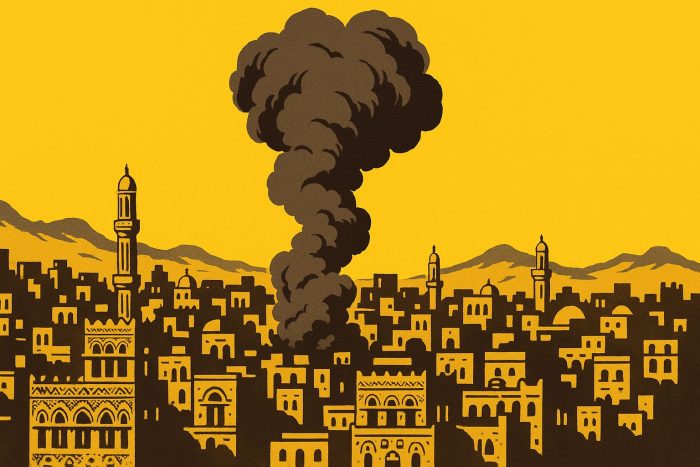
Since the onset of the Saudi-led intervention in Yemen in 2015, the UK has been a key arms supplier to Saudi Arabia, licensing over £7 billion in weapons sales, including fighter jets, bombs, and surveillance equipment—despite mounting evidence of violations of international humanitarian law. Airstrikes conducted by the coalition, often using UK-supplied platforms, have hit hospitals, schools, farms, and civilian gatherings, contributing to what the UN calls one of the world’s worst humanitarian crises.
Legal and political efforts, including a major judicial review by the Campaign Against Arms Trade (CAAT), have sought to halt UK exports, citing a clear risk of civilian harm, but have largely been unsuccessful. Civil society organisations such as Oxfam have documented thousands of casualties and systematic damage to essential infrastructure, arguing that continued arms sales not only prolong the conflict but place the UK in potential breach of its own laws and international obligations—raising fundamental questions about whether strategic alliances have trumped ethical responsibility in British foreign policy.
5.1. UK arms exports to Saudi Arabia and the war in Yemen
The Saudi-led coalition, which includes the UAE and other Gulf states, began its military intervention in Yemen in March 2015, aiming to restore the internationally recognised Yemeni government and counter the Houthi movement. The war has led to what the UN has described as one of the world’s worst humanitarian crises, with tens of thousands of civilian deaths, massive displacement, famine, and the collapse of basic infrastructure.
The UK is one of Saudi Arabia’s largest arms suppliers, along with the U.S. and France Since 2015, the UK has licensed 1) over £7 billion in arms sales to Saudi Arabia (likely underestimates, as open licenses are not fully counted) and 2) weapons include fighter jets (Typhoon and Tornado), missiles, bombs, aircraft parts, and surveillance equipment. These exports have continued despite credible reports of their use in attacks that have caused civilian casualties and possibly violated international humanitarian law (UK Parliament, 2019).
5.2. Legal and political challenges in the UK
Despite overwhelming evidence of violations of International Humanitarian Law in Yemen—including airstrikes by the Saudi-led coalition targeting hospitals, schools, food sources, and even civilian gatherings such as weddings and funerals—the UK government has persisted in its arms exports to Saudi Arabia. These exports continue even though UK export laws explicitly forbid sales when there is a clear risk that the weapons could be used in such violations. Rather than halting the trade, the government has prioritised maintaining its lucrative defense relationship with Saudi Arabia, its largest arms client. In response, the Campaign Against Arms Trade (CAAT) filed a Judicial Review on 26 October 2020 to challenge the legality of the government’s decision to resume these arms sales. On 20 April 2021, the High Court granted permission for the case to proceed, and the hearing was held from 31 January to 2 February 2023. Unfortunately, on 6 June, the court dismissed CAAT’s challenge on all counts, dealing a major setback to efforts aimed at holding the UK government accountable for its role in the Yemen conflict (CAAT, 2024).
The UK has faced relentless criticism over the last few years. As a result of the noiseless impact of legal actions, the UK arms sales have drawn condemnation from parliamentary committees (i.e., Committees on Arms Export Controls), international NGOs like Amnesty International and Human Rights Watch, and UN experts who have warned that these arms may be facilitating war crimes, alongside the general public (Human Rights Watch, 2023).
5.3. Impact of UK arms exports on Yemen
The UK’s continued supply of advanced weapons and logistical support to Saudi Arabia has played a significant role in sustaining the Saudi-led air campaign in Yemen, contributing to what has become one of the world’s most severe humanitarian crises. UK-supplied aircraft and munitions have been used in airstrikes that have hit civilian targets such as hospitals, schools, markets, and homes, with devastating consequences for the Yemeni population. Analysts and critics argue that this sustained arms flow enabled a prolonged conflict, delayed diplomatic efforts, and weakened multilateral pressure on Saudi Arabia to de-escalate or adhere to international norms. By failing to join countries like Germany and Norway in suspending arms exports, the UK not only undermined collective leverage but also missed a crucial opportunity to potentially reduce the intensity or duration of the war. Such a step might have forced Saudi Arabia to seek a political resolution sooner and helped prevent further civilian casualties and infrastructure destruction. This case highlights the deep tension between strategic interests and ethical obligations in arms export policy, raising urgent questions about the responsibilities of democratic exporters, the credibility of global export control regimes, and the limits of domestic oversight in preventing complicity in foreign conflicts.
5.3.1. A deeper look into potential UK-linked damage in Yemen
In 2020, then UK Trade Secretary Liz Truss authorised the resumption of arms exports to Saudi Arabia, lifting a suspension that had been imposed following a 2019 court ruling won by CAAT’s campaign concerned about violations of international humanitarian law in Yemen. At the time, the UK government maintained that the resumption was justified, citing only “isolated incidents” of unlawful airstrikes. However, Oxfam, drawing on its operational experience in Yemen, questioned the government’s assessment and launched an investigation into the actual impact on civilians (Human Rights Watch, 2022).
As new legal efforts emerge to challenge the UK’s continued arms sales to the Saudi-led coalition, Oxfam has released the findings of its analysis—findings that strongly contradict the government’s position. According to data from the organisation’s Civilian Impact Monitoring Project, there were 1,727 recorded attacks on civilians or civilian infrastructure between 2020 and 2021. Of these, approximately a quarter were airstrikes conducted by the Saudi-led coalition, which receives substantial arms supplies from both the UK and the United States (Civilian Impact Monitoring Project, 2021).
The documented targets included homes, farms, roads, medical facilities, religious sites, marketplaces, industrial buildings, and maritime vessels. These attacks resulted in 2,614 civilian casualties—839 fatalities and 1,775 injuries. Oxfam notes that many of these incidents may constitute war crimes under international law (Oxfam, 2023a).
Focusing on the period from January 2021 to February 2022, the data further reveals that Saudi-led airstrikes caused civilian harm on a near-daily basis. During this timeframe, at least 251 civilians were killed and 571 injured in coalition airstrikes, while 293 incidents led to forced displacement. Despite this consistent pattern of harm, both the UK and US governments have continued arms sales to Saudi Arabia.
Yemen’s healthcare system has been severely crippled by the conflict. Nineteen attacks were recorded on hospitals, clinics, and ambulances, 13 of which were airstrikes attributed to the Saudi-led coalition—strikes that violate international humanitarian protections for medical services.
The war has also exacerbated food insecurity in a country that imports roughly 90% of its food. Agricultural infrastructure has suffered extensively, with 179 attacks on farms reported. In many cases, farmland remains unusable due to the presence of unexploded ordnance, including cluster munitions, artillery shells, and landmines (Oxfam, 2023b).
6. Domestic legal and political pressures in the United Kingdom
While the UK government has justified continued arms exports to Saudi Arabia on strategic and economic grounds, these decisions have sparked intense domestic scrutiny.
The issue of arms sales to Saudi Arabia is not confined to foreign policy—it has become a live and contested matter within UK politics, civil society, and the legal system (CAAT, 2024; Parliament of the United Kingdom, n.d.).
6.1. Legal challenges
The most significant legal intervention came in 2019, when the UK Court of Appeal ruled that arms exports to Saudi Arabia were unlawful, citing the government’s failure to adequately assess whether there was a clear risk of serious violations of IHL in Yemen (CAAT, 2021), The case was brought by CAAT, marking a rare instance in which the UK’s export licensing regime was judicially challenged and overturned.
Although the government resumed arms exports in 2020 after conducting a new risk assessment, the case exposed serious weaknesses in the oversight mechanisms and remains a landmark in UK arms trade jurisprudence (Human Rights Watch, 2019).
6.2. Parliamentary oversight and debate
UK Parliament has seen repeated cross-party motions and inquiries challenging the legality and morality of arms sales to Saudi Arabia. The Committees on Arms Export Controls (CAEC) have urged stronger safeguards (House of Commons Library, 2023). Backbench MPs have tabled debates, highlighting human rights concerns. And pressure has also come from within the ruling party itself, with some Conservative MPs expressing discomfort with the policy.
However, parliamentary motions to suspend sales have not led to binding changes, highlighting the executive’s broad discretion in arms export decisions.
6.3. Civil Society
Organisations such as AOAV, CAAT, Amnesty International, Oxfam, and Save the Children have been vocal in campaigning for a full suspension of arms sales to parties involved in the Yemen war, raising public awareness of UK complicity in humanitarian harm, and submitting evidence to parliamentary inquiries and legal reviews. Public opposition has grown, particularly in response to documented civilian casualties, reinforcing that the issue resonates beyond policy circles.
7. A way forward?
Several countries have shown that it is possible to align arms trade decisions with international humanitarian law and ethical responsibility, even in the absence of legal obligation. Spain’s cancellation of a bullet contract with Israeli arms firm IMI Systems in April 2025—under political pressure from leftist coalition partners amid ongoing violence in Gaza—demonstrated that ethical considerations can drive foreign policy. Germany, Norway, and the Netherlands have similarly suspended arms exports to countries such as Saudi Arabia, the UAE, and Egypt in response to human rights abuses and war crimes concerns. These actions, while economically and diplomatically costly, have reflected a commitment to international norms and strengthened parliamentary and civil society oversight.
History offers further precedent for effective international cooperation through arms embargoes and sanctions. Measures imposed on Sierra Leone, apartheid South Africa, Myanmar, North Korea, Somalia, and Russia have—at times—diminished conflict intensity, hindered rights-abusing regimes, and enabled diplomatic engagement or peacebuilding. While not always transformative on their own, such interventions have served to reinforce global standards, expose double standards, and apply pressure where accountability is otherwise lacking. These examples show that, while suspensions may not halt violence outright, they can reduce harm, foster long-term stability, and offer a principled path forward in global arms control.
7.1. The case of Spain
On October 21st 2024, Spain signed a contract with the Israeli company IMI Systems (acquired by the tech giant Elbit Systems) represented by Guardian Defense & Homeland Security S.A. to buy 15.3m of bullets (Ramon calibre 9mm Parabellum) for Guardia Civil (one of the Spanish Police bodies), worth 6.6m (AP News, 2025).
On April 25th 2025, Pedro Sánchez, president of Spain, unilaterally rescinded the contract with IMI Systems, giving up on the purchase.
IMI System, until 2018 a public Israeli company, was then acquired by the Israeli-based military technology giant Elbit Systems purchase contract to IMI Systems LTD. Elbit Systems is also the main supplier of ground equipment and drones to the Israeli army, many of which are used in the ongoing war offensive in Gaza (Human Rights Watch, 2023).
The ATT focuses on arms’ exports rather than imports. However, although the treaty does not oblige Spain to stop imports in order to abide by IHL, the decision not to purchase arms from a country involved in an armed conflict with potentially serious human rights violations is in line with the overall objective of the ATT: reducing the risks of the arms trade contributing to violations of human rights or humanitarian law and acting with caution in high-risk situations (Amnesty International, 2023).
Spain wasn’t legally obligated to rescind this contract and avoid Israeli arms purchases, but politically and ethically it can be seen as consistent with the principles of the ATT. The decision from the president comes after the pressure of Sumar, the coalition of several leftist groups that Sánhez governs with this term.
The representatives of Sumar have been campaigning against Israel’s policy in Gaza since October 7th 2023 and have pressured the Spanish government to follow IHL by the book and have strongly advocated to break all ties with Israel, including the arms’ import (Human Rights Watch, 2023).
Actions like this show alignment with international law and international cooperation, as well as with ethical principles. It also shows there is a way forward for accountability, transparency, and justice that states can follow.
7.2. The case of Germany
Germany has a relatively robust arms export control system. In several cases, it has suspended arms sales following human rights concerns.
In 2018, and after the murder of journalist Jamal Khashoggi and concerns over Saudi involvement in the war in Yemen, Germany halted arms exports to the kingdom (Reuters, 2018). The suspension was extended multiple times despite pressure from industry and allies.
Germany has also demanded end-use guarantees and maintains a parliamentary oversight mechanism to monitor arms exports (SIPRI, 2023).
7.3. The case of Norway
Norway has acted decisively in response to human rights concerns. In 2017 and 2018, Norway suspended arms and ammunition exports to United Arab Emirates and Saudi Arabia due to their role in the conflict in Yemen. Norwegian authorities cited the risk that Norwegian arms could be used in violation of international humanitarian law (Al Jazeera, 2018).
7.4. The case of The Netherlands
Known for its transparency and rigorous export controls, The Netherlands froze export licenses for military equipment to Egypt.in 2013, following a military coup and subsequent human rights abuses (Wezeman, 2018).
The Netherlands also pushed within the EU for stricter enforcement of the EU Common Position on Arms Exports, which includes criteria related to human rights and conflict prevention (European Union External Action Service, 2023).
These examples demonstrate that it is possible for arms-exporting states to take principled stands, even when it comes at an economic or diplomatic cost.
7.5. A history of international cooperation towards non-violence
There are several cases where sanctions or arms export suspensions have had a positive impact, often contributing to humanitarian protection or peacebuilding efforts (Hogendoorn, n.d.) While the effectiveness of sanctions and arms embargoes can be contested, some instances show clear benefits, especially when they have led to reduced violence, prevention of human rights abuses, or contributed to diplomacy. Here are a few examples:
7.5.1. United Nations Arms Embargo on Sierra Leone (1997-2001)
Sierra Leone was embroiled in a brutal civil war that involved the RUF (Revolutionary United Front), notorious for its use of child soldiers and horrific violence against civilians. The UN Security Council imposed an arms embargo in 1997 to prevent the flow of weapons to the warring factions (United Nations, 1997–2024).
As a direct consequence, the arms embargo contributed to reducing the conflict’s intensity, as it limited access to military resources for both sides. It also weakened the RUF’s military capabilities and reduced civilian deaths in areas where fighting had previously been intense and it supported the eventual peace agreement and helped stabilise the country, leading to the formation of a post-conflict peacebuilding framework (Hogendoorn, n.d.)
7.5.2. United States and European Union sanctions on apartheid South Africa (1980s–1990s)
In response to South Africa’s apartheid policies, many countries, led by the U.S. and EU, imposed economic sanctions, including arms embargoes. The ams embargoes limited the ability of the apartheid regime to import weapons, which significantly hampered its military capabilities (Amnesty International, 2023). Sanctions also targeted the regime’s key economic sectors, contributing to growing domestic and international pressure, and helped hasten the end of apartheid, contributing to a peaceful transition to democracy and reducing the scope of violence during the 1994 transition (United States Department of State, 2023). These actions helped end decades of racial oppression, which directly saved lives by improving the security and human rights situation for millions of South Africans.
7.5.3. European Union arms embargo on Myanmar (2013–Present)
Myanmar has faced intense scrutiny for its military junta and human rights abuses, particularly the genocide against the Rohingya and other ethnic minorities. The EU imposed arms embargoes and targeted sanctions against Myanmar’s military leadership in response to the junta’s actions (European Council, 2013). The arms embargo reduced the junta’s ability to acquire weapons, weakening their capacity to engage in armed violence against civilians. Sanctions targeted military leaders, cutting off their financial resources and pressuring them to negotiate with opposition groups. At the same time, humanitarian protection plays an important role in the area; it has been facilitated, as international pressure has led to more support for displaced persons and minorities affected by the violence. While the situation remains complex, the sanctions have helped reduce the scale of military operations against civilian populations and prevented further military escalation (Human Rights Watch, 2023).
7.5.4. Sanctions on North Korea (2000s–Present)
North Korea’s nuclear weapons program and aggressive missile tests have led to widespread sanctions from the UN, the U.S., and the EU. While the human cost of sanctions has been debated, these measures have aimed to limit North Korea’s access to resources for further military development (United Nations, 1997–2024; United States Department of State, 2023). The sanctions have limited North Korea’s ability to expand its nuclear arsenal, which reduces the potential threat to its neighbors and global security. There is also evidence that sanctions have led to increased diplomatic pressure on North Korea to engage in talks, as seen in the 2018–2019 negotiations with the U.S. Some relief measures have been included to mitigate the humanitarian impact, allowing for targeted aid to reach vulnerable populations. The indirect life-saving impact comes from reducing the threat of nuclear escalation and regional conflict, particularly for neighboring countries like South Korea and Japan.
7.5.5. The United Nations arms embargo on Somalia (1992–Present)
After the collapse of the Somali government and the subsequent civil war, Somalia was subject to a UN arms embargo starting in 1992. The arms embargo aimed to prevent further fueling of violent conflict by restricting the flow of weapons into the hands of warring factions (United Nations, 1997–2024). While the embargo has not completely stopped violence, it reduced the intensity of the conflict by limiting access to military hardware. In some areas, the embargo facilitated the peacebuilding process and helped keep some factions from becoming stronger militarily, indirectly contributing to humanitarian aid efforts reaching those affected by the conflict. By limiting the availability of weapons, the embargo has reduced the scale of violence and allowed for greater international intervention in providing humanitarian aid and peacekeeping missions.
7.5.6. European Union and U.S. sanctions on Russia (Post-2014, Ukraine Conflict)
Following Russia’s annexation of Crimea in 2014 and its involvement in the conflict in Eastern Ukraine, the EU and U.S. imposed sanctions aimed at penalising Russia’s actions (European Union External Action Service, 2023). The sanctions led to a reduction in Russia’s military spending and put significant economic pressure on Russia, especially in the energy and financial sectors. The sanctions helped support the Ukrainian government by limiting Russia’s military buildup, and provided space for diplomatic negotiations. Though the conflict is ongoing, the sanctions helped prevent further escalation of the war, limiting the scope of the conflict and saving lives by creating openings for diplomatic solutions. In these cases, arms embargoes and sanctions were part of larger international efforts to curb violence, prevent the proliferation of weapons, and exert pressure on authoritarian regimes. Though these measures have mixed results, in many cases, they have helped reduce the scale of violence, limit the flow of military resources, and ultimately saved lives (Hogendoorn, n.d.). In essence, the suspensions didn’t significantly alter the military behaviour of these states, but they did raise reputational costs, apply international pressure, and strengthen global norms around responsible arms trading (SIPRI, 2023).
8. Conclusion: a pattern of neglect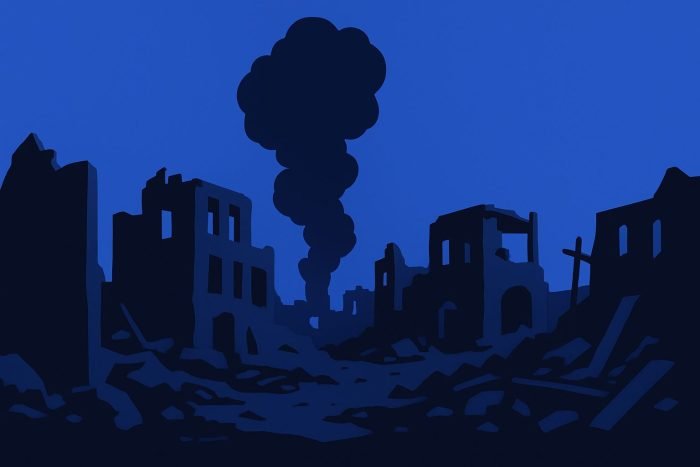
From 2021 to 2024, the UK exported arms to 84 countries. At least 23 of those recipients have used explosive weapons in populated areas during that same period. These countries include: Saudi Arabia, United States, Turkey, Israel, Syria, Sudan, Armenia, the Philippines, Pakistan, Kenya, Ethiopia, Uganda, Afghanistan, Somalia, Nigeria, Iraq, Ukraine, India, Egypt, Bahrain, Bangladesh, Indonesia, and Yemen.
The presence of UK arms exports to these countries does not confirm that British weapons were used in every instance of explosive violence. But the risk is real — and in many cases, the legal thresholds for denying arms transfers may already have been crossed. By continuing these exports in the face of documented violations of international humanitarian law — some condemned by the United Nations itself — the UK undermines both its legal obligations and its claims to uphold a “rules-based international order.”
The UK has committed to upholding international humanitarian law, to protecting civilians in conflict, and to preventing the proliferation of weapons that cause indiscriminate harm. But those commitments mean little without meaningful enforcement. It is, as Albert Einstein once wrote, a truth that “The world is in greater peril from those who tolerate or encourage evil than from those who actually commit it.” If the UK’s arms licensing regime is to have integrity, it must be grounded in transparency, legal accountability, and a genuine commitment to safeguarding life. It should not, quite simply, tolerate or encourage evil.
9. Recommendations 
To abide by the Arms Trade Treaty, and International Humanitarian Law in general, and effectively reduce the risk of UK-exported arms contributing to civilian deaths, the UK government should take the following actionable steps:
- Presume denial for high-risk exports
Automatically reject arms licences to countries with a record of serious IHL or human rights violations. - Mandate independent risk assessments
Ensure all export decisions are based on transparent, legally binding evaluations by independent experts. - Increase parliamentary oversight
Require parliamentary scrutiny of arms deals to high-risk states, including pre-approval for major exports. - Improve transparency
Publish detailed, disaggregated export data by end-user, weapon type, and licence terms. - Enforce end-use controls
Implement robust post-sale monitoring, including verification mechanisms and recall clauses. - Use export suspensions strategically
Link arms freezes to clear diplomatic conditions, using them as leverage for compliance with IHL. - Align policy with international law
Base all export approvals on full use of UN, NGO, and independent reporting on recipient conduct. - Legislate for accountability
Introduce criminal and civil liability for companies and officials enabling unlawful arms transfers. - Strengthen global cooperation
Build EU and transatlantic consensus on arms controls, pushing for consistent ATT enforcement. - Invest in ethical alternatives
Fund defence industry conversion, peacebuilding, and civil society work tracking arms misuse.
10. References
Abdelrahman, M. (2021). Authoritarianism and the politics of resistance in Egypt. Zed Books.
Action on Armed Violence. (2024). Explosive Violence Monitor 2021–2024. https://aoav.org.uk/
Al Jazeera (3 January 2018) Norway suspends arms exports to UAE over war in Yemen. https://www.aljazeera.com/news/2018/1/3/norway-suspends-arms-exports-to-uae-over-war-in-yemen
Amnesty International. (2022). Egypt: Human rights crisis deepens one year after national human rights strategy launched https://www.amnesty.org/en/latest/news/2022/09/egypt-human-rights-crisis-deepens-one-year-after-national-human-rights-strategy-launched/
Amnesty International. (2023). Applying the Arms Trade treaty to ensure the protection of human rights. https://www.amnesty.org/en/documents/act30/0003/2015/en/
Amnesty International. (2023). Arms Control https://www.amnesty.org/en/what-we-do/arms-control/
Amnesty International. (2024). Somalia: Death of 23 civilians in military strikes with Turkish drones may amount to war crimes – new investigation https://www.amnesty.org/en/latest/news/2024/05/somalia-death-of-23-civilians-in-military-strikes-with-turkish-drones-may-amount-to-war-crimes-new-investigation/
AP News (3 June 2025). Spain cancels a contract for anti-tank missiles built by an Israeli subsidiary. https://apnews.com/article/spain-israel-missile-contract-cancellation-441fb6373134b4c28e068e05c59ee537
Bauer, S. & Remacle, E. (n.d.). European Policy and Arms Export Control. file:///C:/Users/DJ/Downloads/9781526137647-9781526137647.00013.pdf
Campaign Against Arms Trade. (2021, April 20). CAAT’s second judicial review. https://caat.org.uk/homepage/stop-arming-saudi-arabia/caats-legal-challenge/legal-challenge/caats-second-judicial-review/caat.org.uk
Campaign Against Arms Trade. (2024, August 29). CAAT’s legal challenge. https://caat.org.uk/homepage/stop-arming-saudi-arabia/caats-legal-challenge/
Civilian Impact Monitoring Project. (2021). 2021 Annual Report. https://civilianimpactmonitoring.org/onewebmedia/2021%20CIMP%20Annual%20Report.pdf
CNN (12 March 2022). Saudi Arabia executes 81 men in one day, the biggest mass execution in decades https://edition.cnn.com/2022/03/12/middleeast/saudi-arabia-mass-execution-terrorism-intl/
Convention on Cluster Munitions (2022). Country profiles. https://www.clusterconvention.org/country-profiles/
Delegation of the European Union to Egypt (2024). EU Annual Report on Human Rights and Democracy in the World: 2023 Country Updates https://www.eeas.europa.eu/delegations/egypt/eu-annual-report-human-rights-and-democracy-world-2023-country-updates_en?s=95
ECFR (European Council on Foreign Relations). (2021). Burning ambition: Egypt’s return to regional leadership and how Europe should respond. https://ecfr.eu/publication/burning-ambition-egypts-return-to-regional-leadership-and-how-europe-should-respond/
European Council. (2013). EU arms embargo on Myanmar. https://www.consilium.europa.eu/en/policies/sanctions-against-myanmar/
European Union. (2021). Common Position 2008/944/CFSP defining common rules governing control of exports of military technology and equipment. Official Journal of the European Union. https://eur-lex.europa.eu/eli/compos/2008/944/oj/eng
European Union External Action Service. (2023). The Adoption of EU Sanctions. https://www.eeas.europa.eu/eeas/sanctions-eu-adoption_en
Financial Times (22 October 2018). Germany halts arms exports to Saudi Arabia after Khashoggi’s death. https://www.ft.com/content/6be62fa2-d5d0-11e8-ab8e-6be0dcf18713
Hogendoorn, E.J. (n.d.). The Humanitarian Impact of UN Arms Embargoes Can End or Limit Violent Conflict? https://www.wilsoncenter.org/sites/default/files/media/documents/event/HumanitarianImpact.pdf
House of Commons Library (2023). UK amends its criteria for arms exports. https://researchbriefings.files.parliament.uk/documents/CBP-9494/CBP-9494.pdf
Human Rights Watch. (4 April 2024). Gaza: Israeli Strike Killing 106 Civilians an Apparent War Crime. https://www.hrw.org/news/2024/04/04/gaza-israeli-strike-killing-106-civilians-apparent-war-crime
Human Rights Watch. (2023, January 31). UK: Court to rule on arms sales to Saudi Arabia. https://www.hrw.org/news/2023/01/31/uk-court-rule-arms-sales-saudi-arabia
Human Rights Watch. (2023). World Report 2024: Israel and Palestine. https://www.hrw.org/world-report/2024/country-chapters/israel-and-palestine
Human Rights Watch. (2023). US and UK Continue to Skirt Accountability in Yemen. https://www.hrw.org/news/2024/01/24/us-and-uk-continue-skirt-accountability-yemen
Human Rights Watch. (27 March 2019). Four years of war in Yemen: 25 Yemeni and global NGOs call on Germany to extend its moratorium on arms sales to Saudi Arabia. https://www.hrw.org/news/2019/03/27/four-years-war-yemen-25-yemeni-and-global-ngos-call-germany-extend-its-moratorium
Human Rights Watch (2022). World Report 2020: Yemen https://www.hrw.org/world-report/2022/country-chapters/yemen
ICRC (International Committee of the Red Cross). (1949). Geneva Convention (IV) relative to the Protection of Civilian Persons in Time of War. https://ihl-databases.icrc.org
ICRC. (2005). The Hague Conventions and declarations of 1899 and 1907. https://ihl-databases.icrc.org
International Committee of the Red Cross (ICRC). (1949). Geneva Conventions and Additional Protocols. https://www.icrc.org/sites/default/files/external/doc/en/assets/files/publications/icrc-002-0173.pdf
International Committee of the Red Cross (ICRC). (12 June 2020). Understanding the Arms Trade Treaty from a Humanitarian Perspective https://www.icrc.org/en/publication/4252-understanding-arms-trade-treaty-humanitarian-perspective
International Court of Justice. (19 July 2024). Legal Consequences arising from the Policies and Practices of Israel in the Occupied Palestinian Territory, including East Jerusalem. https://www.icj-cij.org/case/186
International Criminal Court. (21 November 2024). Situation in the State of Palestine: ICC Pre-Trial Chamber I rejects the State of Israel’s challenges to jurisdiction and issues warrants of arrest for Benjamin Netanyahu and Yoav Gallant. https://www.icc-cpi.int/news/situation-state-palestine-icc-pre-trial-chamber-i-rejects-state-israels-challenges
Kinninmont, J. (2017). Vision 2030 and Saudi defence industry expansion. Chatham House. https://www.chathamhouse.org/sites/default/files/publications/research/2017-07-20-vision-2030-saudi-kinninmont.pdf
Landmine Monitor. (2021). UK country profile: Mine Ban Treaty compliance.https://the-monitor.org/reports/landmine-monitor-2021
OHCHR. (18 September 2020). Syria: Violations and abuses rife in areas under Turkish-affiliated armed groups – Bachelet. https://www.ohchr.org/en/press-releases/2020/09/syria-violations-and-abuses-rife-areas-under-turkish-affiliated-armed-groups
OHCHR (Office of the United Nations High Commissioner for Human Rights). (2023). Egypt: Latest News and Statements. hhttps://www.ohchr.org/en/countries/egypt
OHCHR (2021). UN Group of Eminent International and Regional Experts on Yemen presents its fourth report to the Human Rights Council: A nation abandoned: A call to humanity to end Yemen’s suffering https://www.ohchr.org/en/press-releases/2021/09/un-group-eminent-international-and-regional-experts-yemen-presents-its?LangID=E&NewsID=27458
OHCHR (10 October 2024) UN Commission finds war crimes and crimes against humanity in Israeli attacks on Gaza health facilities and treatment of detainees, hostages. https://www.ohchr.org/en/press-releases/2024/10/un-commission-finds-war-crimes-and-crimes-against-humanity-israeli-attacks
Oxfam. (2023, January 26). Fueling conflict: Analyzing the human impact of the war in Yemen. https://policy-practice.oxfam.org/resources/fueling-conflict-analyzing-the-human-impact-of-the-war-in-yemen-621478/
Oxfam. (2023, January 26). Yes, British arms are killing innocent civilians in Yemen. Why is the government still selling them? https://views-voices.oxfam.org.uk/2023/01/british-arms-yemen/
Parliament of the United Kingdom. (n.d.). Committees on Arms Export Controls (CAEC). https://committees.parliament.uk/publications/43155/documents/214695/default/
Reuters. (2018). Germany halts arms sales to Saudi Arabia. https://www.reuters.com/article/world/analysis-german-halt-to-saudi-arms-sales-could-put-squeeze-on-eurofighter-idUSKCN1MX2VL/
Save the Children. (n.d.). What is happening https://www.savethechildren.net/stories/what-happening-yemen
SIPRI. (2023). Arms transfers database. Stockholm International Peace Research Institute. https://www.sipri.org/databases/armstransfers
SIPRI. (2019). Legal challenges to EU member states’ arms exports to Saudi Arabia: Current status and potential implications. https://www.sipri.org/commentary/topical-backgrounder/2019/legal-challenges-eu-member-states-arms-exports-saudi-arabia-current-status-and-potential
UK Parliament. (2019, July 5). UK arms exports to Saudi Arabia: Q&A. https://researchbriefings.files.parliament.uk/documents/CBP-8425/CBP-8425.pdfresearchbriefings.files.parliament.uk+1
UN Human Rights Council. (2022). Report on the impact of arms transfers on civilian harm. https://digitallibrary.un.org/record/3875124?v=pdf
UNODA (United Nations Office for Disarmament Affairs). (1980). Convention on Certain Conventional Weapons. https://disarmament.unoda.org/the-convention-on-certain-conventional-weapons
United Nations. (1992–present). Arms embargo on Somalia. UN Security Council Resolutions.https://digitallibrary.un.org/record/135713?v=pdf
United Nations. (1997–2001). Arms embargo on Sierra Leone. UN Security Council Resolutions. https://digitallibrary.un.org/record/244598?v=pdf
United Nations. (1997–2024). UN Security Council sanctions and arms embargoes database. https://www.un.org/securitycouncil/sanctions/information
United Nations. (2013). Arms Trade Treaty. https://www.un.org/disarmament/convarms/att/
United Nations Security Council. (n.d.). Sanctions on North Korea. https://www.un.org/securitycouncil/sanctions/1718
United States Department of State. (2023). Sanctions programs and country information. https://www.state.gov/policy-issues/sanctions-and-designations/
United States Department of State. (n.d.). Sanctions on Russia. https://www.state.gov/division-for-counter-threat-finance-and-sanctions/ukraine-and-russia-sanctions
UNSOM. (2022). Report on civilian casualties in Somalia. United Nations Assistance Mission in Somalia. https://unsom.unmissions.org/sites/default/files/22062023_srsg_statement_as_delivered.pdf
Wezeman, P. (2018) International arms flows: monitoring, sources and obstacles. Clingendael Institute. https://www.clingendael.org/
Did you find this story interesting? Please support AOAV’s work and donate.
Donate
